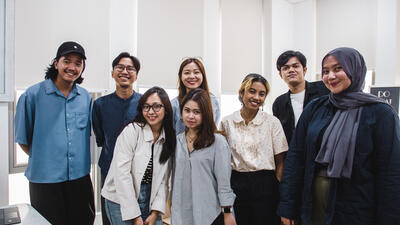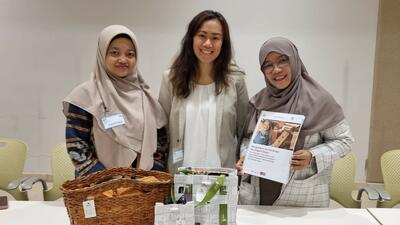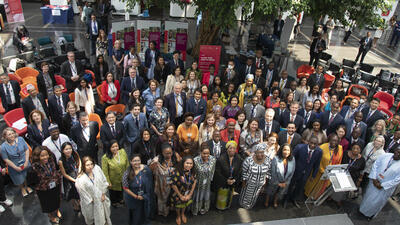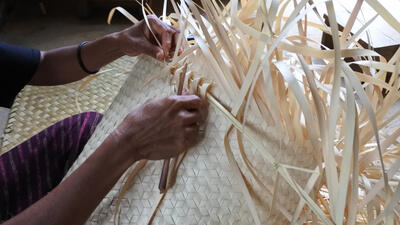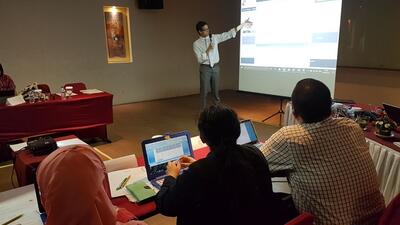Press releases
More than a third of Indonesia's exporters affected by non-tariff measures
26 November 2013
Thirty-seven percent of Indonesian exporters and importers are affected by trade-restricting measures, according to a survey of nearly 1,000 Indonesian companies by the International Trade Centre (ITC) published this week. This compares with an average ratio of 55% in more than 20 other developing countries surveyed by ITC during the last three years.
Non-tariff measures (NTMs), which include a variety of regulations on imports and exports, such as technical requirements, quotas and rules of origin, have become a major impediment to international trade as companies struggle to comply with an increasingly complex web of policies and technical standards.
The survey found that exporters of agricultural goods are the most affected, with 51% of companies reporting that they face burdensome NTMs. In the wood sector, one of Indonesia’s leading manufacturing subsectors, 28% of companies are affected. By contrast, just 8% of exporters of textiles say they are affected by NTMs.
Among the companies interviewed, 34% reported having faced difficulties dealing with export regulations in Indonesia. Exporters also reported delays and unusually high fees and charges as major procedural obstacles to trade. ‘These are the challenges that should be easy to address in order to increase the country’s competitiveness,’ said Mondher Mimouni, the ITC chief in charge of the NTM programme. ‘The government and the business community need to work together to find solutions.’
ITC also recommends increasing industry awareness of new requirements of destination markets and enabling the assessment of domestic administrative procedures.
Nearly two-thirds (66%) of exporters reported burdensome regulations applied by partner countries. More than 55% of these barriers are technical requirements, such as product specifications that exported products need to comply with. Among the technical requirements deemed to be difficult, fumigation issues were the most commonly mentioned. Conformity assessment procedures account for 24% of burdensome NTMs applied by importing countries, which include certification. Affected export products include seafood, coffee and coffee substitutes, cocoa, wood manufactures and footwear.
Among Indonesia’s imports, agricultural products are the most affected by NTMs, with pre-shipment inspection, quantity-control measures and technical requirements all being cited as restrictive measures. Importers reported that unusually high fees and charges, delays and informal payments are common. It should be noted that some of these measures may have been put in place by the Government of Indonesia to meet certain public-policy objectives.
‘Importing countries are increasingly imposing more regulations, as consumers demand more information about products. Most of these regulations are in place to ensure quality or protect consumers’ health,’ Mimouni said. ‘However, it is particularly difficult for small and medium-sized enterprises (SMEs) to comply with these requirements, which may be beyond the reach of companies seeking to export.
To tackle burdensome NTMs imposed by partner countries, both regional and international, ITC recommends that Indonesian authorities discuss NTMs directly with relevant destination countries and cooperate with partner countries in terms of eliminating barriers to trade and harmonizing measures. Some issues could also be brought up within the context of World Trade Organization negotiations.
Action points for the government to address these problems will be discussed at a national stakeholder meeting on NTMs in Jakarta, Indonesia, on 27 November 2013. The meeting will be organized by ITC and the Indonesian Ministry of Trade. Participants will include representatives from the private sector, trade support institutions, government agencies and academia.
‘The findings from this NTM survey will be very important in assisting the Indonesian Government and the business community, especially SMEs, in gaining an evidence-based insight into the barriers that exporters face, and will provide a platform for dialogue with Indonesia’s trading partners who may impose these trade-restrictive measures,’ said ITC Executive Director Arancha González. ‘ITC, through the NTM survey, has provided a critical transparency tool but we can also work with SMEs to help them to meet the quality standards of their actual and potential export markets.’
ITC is the joint agency of the World Trade Organization and the United Nations. ITC assists small and medium-sized enterprises in developing and transition economies to become more competitive in global markets, thereby contributing to sustainable economic development within the frameworks of the
Aid-for-Trade agenda and the Millennium Development Goals.
Please download the PDF here .




